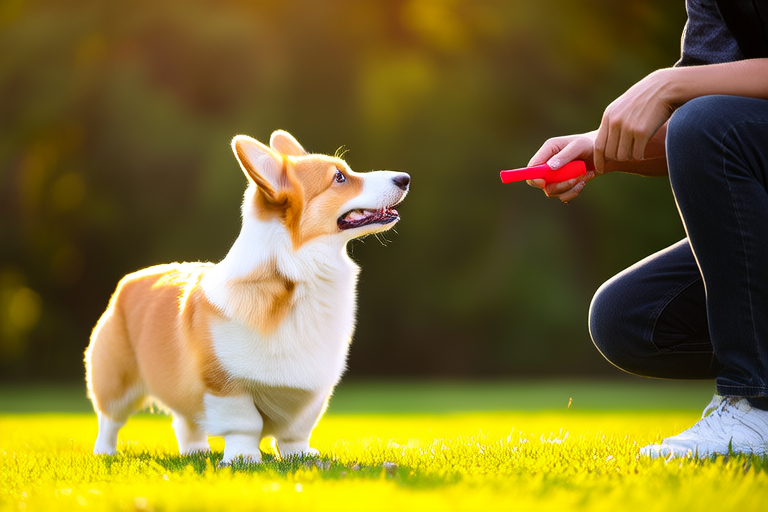Training Tips for Corgis: Taming the Energetic Herding Breed Made Easy
Welcome to the world of Corgis! Known for their distinct appearance and unique personalities, these small but mighty dogs have captured the hearts of many. With their long bodies, short legs, and a tail that can either be docked or naturally bobbed, Corgis are unmistakable. But beyond their adorable looks, they are also known for their high energy and strong herding instincts. This combination makes them both a challenge and a delight for dog owners. In this article, we will explore practical training tips to help you manage and harness the energy of your Corgi while ensuring they remain happy and well-behaved.
The Unique Characteristics of Corgis
Corgis are a herding breed, originally bred in Wales to herd cattle. Their intelligence and agility make them excellent workers, but these traits also mean they require a lot of mental and physical stimulation. Corgis are known for their boundless energy, which can sometimes lead to destructive behavior if not properly channeled. They are also highly intelligent, which means they can quickly learn commands and tricks. However, their intelligence also means they can become bored easily, leading to mischief if they are not given enough mental challenges.
One of the most endearing aspects of Corgis is their loyalty. They form strong bonds with their families and can be very protective, making them great watchdogs. However, this loyalty can sometimes manifest as separation anxiety, so it’s important to socialize them from a young age and provide them with plenty of companionship.
Positive Reinforcement Training
When it comes to training Corgis, positive reinforcement is key. This method involves rewarding good behavior rather than punishing bad behavior, which helps build a strong bond between you and your dog. The rewards can be treats, praise, or playtime, depending on what your Corgi finds most motivating. It’s important to be consistent with your rewards and to keep training sessions short and fun. Corgis have short attention spans, so breaking training into smaller sessions can help keep them engaged.
Start by teaching basic commands like ‘sit,’ ‘stay,’ and ‘come.’ Use a treat or toy to lure your Corgi into position, then give the command and reward them when they comply. Once your Corgi understands the command, gradually reduce the use of treats and rely more on verbal praise and affection. Consistency is crucial; always use the same command word for each action to avoid confusion.
For example, if you’re teaching your Corgi to sit, hold a treat above their nose and say ‘sit.’ As they look up, their bottom will naturally lower. The moment they sit, give them the treat and lots of praise. Repeat this process several times a day, and soon your Corgi will associate sitting with the treat and praise.
Managing Energy Levels
Given their high energy levels, it’s essential to provide Corgis with ample opportunities for exercise and mental stimulation. Daily walks, runs, or play sessions in a safe, enclosed area are necessary to help them burn off excess energy. Corgis enjoy activities that challenge their minds, such as hide-and-seek games, puzzle toys, or even agility courses. These activities not only tire them out physically but also mentally, preventing boredom and potential behavioral issues.
In addition to physical exercise, mental stimulation is equally important. Puzzle toys, interactive games, and obedience training can all help keep your Corgi’s mind sharp and engaged. Consider enrolling your Corgi in a doggy daycare or hiring a pet sitter to ensure they have companionship and playtime when you’re away.
Common Behavioral Issues and Solutions
Like any breed, Corgis can exhibit certain behavioral issues. One of the most common is excessive barking, especially when they are bored or anxious. To address this, try to identify the trigger for the barking and work on redirecting their attention. For instance, if your Corgi barks at passersby, teach them the ‘quiet’ command and reward them when they stop barking. Another effective strategy is to provide them with something else to focus on, like a chew toy or a puzzle feeder.
Another issue that Corgis may face is separation anxiety. This can manifest as destructive behavior, whining, or pacing when left alone. To combat this, gradually increase the time your Corgi spends alone, starting with just a few minutes and slowly building up to longer periods. Providing them with a safe, comfortable space with a favorite toy or blanket can also help ease their anxiety. Additionally, consider leaving the radio on or playing calming music to create a soothing environment.
Maintaining a Strong Bond Through Training and Affection
The relationship between you and your Corgi is built on trust, respect, and love. Regular training sessions not only teach your Corgi valuable skills but also strengthen the bond between you. Make sure to incorporate plenty of affection and playtime into your routine. A well-trained Corgi is a happy Corgi, and a happy Corgi is a joy to be around.
Remember, every Corgi is unique, and what works for one may not work for another. Be patient and observant, and adjust your approach as needed. With time and effort, you’ll find the perfect balance that keeps your Corgi healthy, happy, and well-behaved.
In conclusion, training a Corgi requires patience, consistency, and a positive attitude. By understanding their unique characteristics and employing the right techniques, you can successfully manage their high energy and herding instincts. With proper training, exercise, and mental stimulation, your Corgi will thrive and become a cherished member of your family. Happy training!
